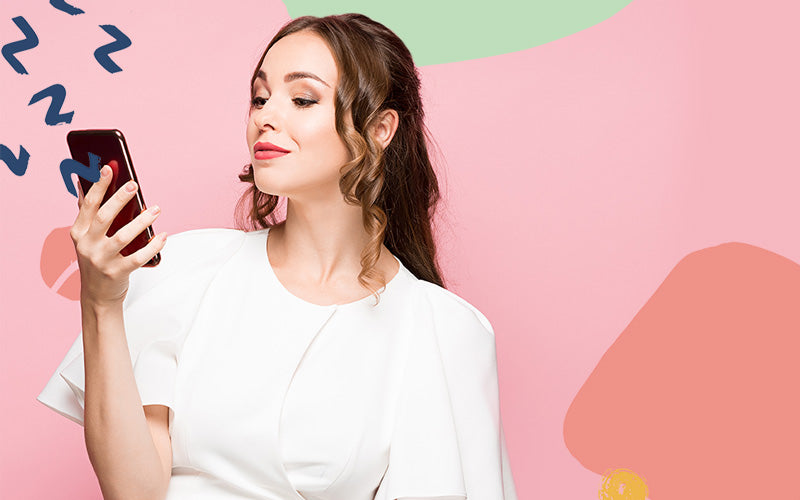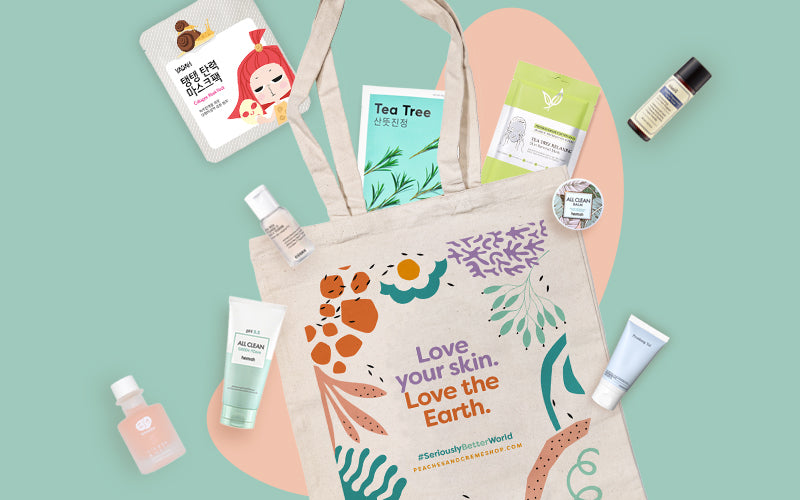A Love Letter to Sunscreens | Skin Cancer Awareness Month
Sun protection is the most important step in your morning skincare routine. Your sunscreen helps shield you against UV radiation which is a form of energy that can damage your skin cells, spawn different skin problems, and—worst of all—put you at risk of skin cancer.
Skin cancer is one of the most common types of cancer. Luckily for us, it is usually curable when detected early and given the right treatment. As the saying goes, however, prevention is better than cure—and for this disease, proper and consistent sun protection is the best way to go.
This Skin Cancer Awareness Month, let’s talk about sunscreen and how this product can be a skin-saving hero. Read on to find out why we love sunscreen and why you should too.

What does the sun have to do with skin cancer?
Before we rave about sunscreens, we need to understand why we’re so against getting chummy with Mr. Sun and what that has to do with skin cancer.
It all begins with ultraviolet radiation—a form of light energy that comes from the sun. There are two types of UV rays, both with different effects on our skin:
- UVA – These ultraviolet rays go deep within your skin, damaging its barrier and causing early signs of aging like fine lines, wrinkles, etc.
- UVB – These rays are responsible for sunburns and, on the other end of the spectrum, what your skin needs to get vitamin D.
So, what about skin cancer? UV radiation is a carcinogen and proven to cause basal cell carcinoma and squamous cell carcinoma, common skin cancers that appear on areas that have been exposed to the sun. In addition, sunburns caused by UV exposure can evolve into melanoma.
Studies show that UV rays can also alter a gene which prevents tumors. This is why overexposure to the sun raises the risk of damaged cells evolving into skin cancer.
☀️ The sun is not the only way to get skin cancer. Stay away from tanning machines since, at the highest intensity, UV radiation from indoor tanning can be 10 to 15 times greater than the sun’s rays. That tan is not worth the risk!
How sunscreen can reduce the risk of skin cancer
The beauty of sunscreen is its simplicity. By shielding your skin against UV radiation, it safeguards your healthy cells against damage that can lead to skin cancer.
Sunscreen is proven to protect against the three most common skin cancers which are squamous cell carcinoma, basal cell carcinoma, and melanoma. Despite the evidence from professionals, however, there has been an alarming number of people who believe the opposite: that sunscreen causes skin cancer. This claim is wrong and passing it off as fact to your family, friends, or online followers would be spreading dangerous misinformation.
Dr. Jennifer Lin, co-director of the Melanoma Risk and Prevention Clinic at the Brigham and Women’s Hospital and the Dermatology Lead of the Melanoma Program at the Dana Farber Cancer Institute, has explained in an interview with Harvard Health Publishing that this misconception came from studies that made a “false association.” The observed individuals who were using sunscreen were also the ones constantly outdoors, sunbathing, and jetting off to sunnier destinations. Simply put, it was the frequent and direct exposure to the sun that increased their risk of cancer.
There are a lot of misconceptions about sunscreen and its effects on your skin. Separating truth from fiction can get difficult but we’re cooking up a guide on this, coming to you soon. 🧑🍳⏲️
How sunscreen protects your skin
Sunscreen is your skin’s first line of defence against the sun. It uses active ingredients also known as filters to prevent UV rays from harming your skin and its healthy cells. The way they shield you, however, will depend on the type of UV filter used in their formulation:
Chemical UV filters are found in, well, chemical sunscreens. They use organic filters which—in the world of science—are ingredients with compounds that carry carbon. These filters absorb UV radiation, convert them into heat, and then release them from your skin.
Mineral UV filters are what physical (aka mineral) sunscreens use. Unlike chemical filters, these sit on top of your skin and act similar to a shield so UV rays just bounce off them. This type of protection is why mineral sunscreens are also usually called “sunblocks.”
🍑 Read our piece on Chemical vs Physical sunscreens for a side-by-side comparison of the two or check out our guide on the best sunscreen for practical tips on choosing your go-to sun protection.
Sunscreen: the gift that keeps on giving

The benefits of sun protection go beyond preventing skin cancer. Sunscreen also plays a starring role in keeping your skin bright and youthful—after all, looking naturally fresh and glowing is only possible if your skin is in good health.
1. Sunscreen prevents premature aging.
UV rays harm skin cells and your skin barrier. When this barrier is damaged, the overall health of your skin tanks and some issues like acne, dehydrated skin, and premature aging crop up. Your chances of getting fine lines, wrinkles, sagging skin, and age spots also skyrocket so it’s always best to start the day with sun protection. Going above and beyond, most sunscreens—especially those from Korean skincare brands—contain hydrating and moisturising ingredients as well and they can help your skin get that soft, youthful bounce.
If your care routine includes retinoids, active ingredients, or brightening skincare, it is doubly important to apply your SPF every morning since these make your skin extra sensitive to sun damage.
2. Yes to sunscreen, no to acne.
The damage to your skin caused by sun exposure contributes to your acne. There is also a process called lipid peroxidation where UV rays (along with other factors like free radicals and the environment) oxidise your sebum which then thickens and clots. This is one of the reasons you get clogged pores and breakouts whenever you don't protect your skin from the sun.
You can’t keep out of the sun forever, though, so it’s best to wear sunscreen during the day and double-cleanse at night. Let’s care for your pores, head off bad acne, and prevent ongoing breakouts from worsening.
3. Say hello to clear and bright skin.
Forgetting to put on sunscreen is going to net you some acne scars, sun spots, and the like. Why? Hyperpigmentation happens when your skin is exposed to *taps the sign* UV radiation. In response to these rays, the melanocyte cells in your skin produce excessive melanin which leads to uneven skin tone and a dull-looking complexion.
Using sunscreen every day helps reduce and prevent hyperpigmentation since it shields your skin against UV rays, stopping the dark spots from looking worse. As your skin heals and stays protected, the discolouration slowly disappears and you get to enjoy clear, healthy skin. So, stay consistent and always remember to apply your sunscreen.
The basics of proper sun protection

Now that we know why sunscreen is the best, period, let's do a quick rundown of how you can make sure that your sun protection is up to par.
1. Use a broad spectrum sunscreen with at least SPF 30.
It's always best to go for a broad spectrum sunscreen since it protects you against both UVA and UVB rays. The SPF number measures how long your sun protection lasts, and the higher it is, the more protected you are. For everyday use, we recommend choosing a sunscreen with SPF 30 to 50 to minimise sun damage.
At a glance, here's how labels can help you check out a sunscreen's defence levels:
- PA (Protection Grade of UVA) – Protects against UVA rays. The more pluses, the higher the protection.
- SPF (Sun Protection Factor) – Measures UVB protection and its duration.
- Broad spectrum – Sunscreens with this label cover UVA and UVB rays even when the PA is not indicated.
Learn more about sunscreen labels and what they mean here.
2. Use at least a dime-sized amount of sunscreen.
Using the right amount of sunscreen ensures that you get the full SPF protection it offers. You can either use a dime size worth of product or go for the two-finger method. Make sure to apply thin and even layers one at a time to avoid feeling sticky and to prevent your sunscreen from rolling and pilling.
Remember to apply some on your neck, ears, and nape as well!
3. Use liquid sunscreens at the start of your day...
...and save the sun sticks or SPF sprays for re-application. It's easier to guarantee that you've applied enough sunscreen when it's in cream, gel, or serum forms. Sun sticks and sprays are travel-friendly, convenient, and less messy but ensuring that you are getting proper protection from them can be a bit tricky.
The American Academy of Dermatology recommends those using sun sticks to do at least four passes, back and forth on each section of the face before gently rubbing it in for an even layer. If you prefer SPF sprays, they recommend placing the nozzle near your skin, spraying generously until it glistens, and then rubbing the product in thoroughly.
While these tips come from a reputable organisation, some cosmetic chemists, dermatologists, and skincare experts have pointed out that this amount is actually not enough and better used as a baseline instead.
Sun sticks and SPF sprays are still great, however, so they are best used for re-application as opposed to being your main protection against UV radiation.
4. Re-apply your sunscreen every 2 hours.
Sun protection is not a one and done affair. Sweat, oil, and the weather are a few reasons your sunscreen wears off over time. To make sure you stay protected throughout the day, make sure to re-apply your SPF every 2 hours (or sooner if you sweat a lot).
5. Minimise direct exposure to the sun.
Despite its wonderful characteristics, sunscreen does not give you absolute protection against the sun. You're not UV-proof so try your best to avoid direct exposure to the sun from 10AM to 4PM, hours when UV radiation are the most intense.
———
Our appreciation for sunscreen has only grown throughout the years. This wonderful invention enables our love for the sun's warmth, shields us against the negative effects of UV rays, and gives our skin the chance to glow. Sunscreen is the gift that keeps on giving, and now is the right time to add it to your skincare routine.
Stay happy, healthy, and glowing! ☀️









Leave a comment